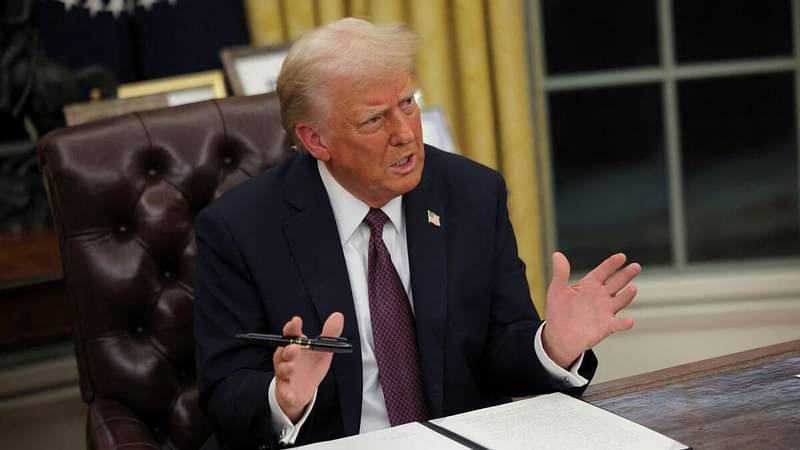In a controversial move on his first full day in office, President Donald Trump signed an Executive Order on Monday to withdraw the United States from the Paris Climate Agreement, making the country one of just four nations—alongside Iran, Libya, and Yemen—that are not part of the global pact to combat climate change.
The decision marked a dramatic shift in US climate policy and aligned with Trump’s broader push to prioritise fossil fuel production over clean energy initiatives. The move was swiftly condemned by environmentalists, scientists, and political leaders who warned that it will accelerate the climate crisis and harm American workers in the long run.
The Paris Agreement, signed in 2015, aims to limit global warming to below 2 degrees Celsius and ideally 1.5 degrees Celsius above pre-industrial levels. The U.S. had previously left the accord under Trump’s first term but rejoined under President Joe Biden in 2020.
Trump’s withdrawal signalled a return to aggressive fossil fuel expansion, coupled with the rollback of clean energy initiatives such as subsidies for electric vehicles and renewable energy projects.
“If they want to be tough on China, don’t punish U.S. automakers and hard-working Americans by handing our clean-car keys to the Chinese,” said Gina McCarthy, former White House climate adviser and head of the Environmental Protection Agency. “The United States must continue to show leadership on the international stage if we want to have any say in how trillions of dollars in financial investments, policies, and decisions are made.”
Alongside the executive order, Trump also signed a formal notification letter to the United Nations, which administered the agreement. The withdrawal process takes one year, meaning the US will officially exit the pact in early 2026.
Despite rapid growth in solar and wind power spurred by Biden’s Inflation Reduction Act, U.S. greenhouse gas emissions have remained largely stagnant. In 2024, emissions dropped by just 0.2 per cent, according to research from the Rhodium Group.
With Trump reversing Biden’s climate policies, analysts predict that US emissions could fall by just 24 to 40 per cent below 2005 levels by 2030—a far cry from Biden’s goal of a 61 per cent reduction.
The move drew sharp criticism from environmental groups and global climate leaders, many of whom fear it will set back international climate efforts at a critical moment.
“President Trump is choosing to begin his term pandering to the fossil fuel industry and its allies,” the Union of Concerned Scientists said in a statement. “His disgraceful and destructive decision is an ominous harbinger of what people in the United States should expect from him and his anti-science cabinet.”
Christiana Figueres, a Costa Rican diplomat who helped negotiate the Paris Agreement, was even more direct, “Trump’s irresponsibility is no surprise. In time, Trump will not be around, but history will point to him and his fossil fuel friends with no pardon.”
Despite its withdrawal, the US remained part of the United Nations Framework Convention on Climate Change (UNFCCC), meaning it will still participate in climate summits like COP29 in Brazil this November. However, Trump’s absence from the Paris Agreement could weaken US influence in international climate negotiations.
Meanwhile, research from Climate Action Tracker warned that if countries fail to meet their climate pledges, global temperatures could rise 2.6 degrees Celsius (4.7 degrees Fahrenheit) by the end of the century—well beyond the Paris Agreement’s original goal.
Trump, however, remained focused on ramping up oil and gas production, solidifying the U.S. as the world’s largest fossil fuel exporter. His administration argues that energy independence and economic growth take precedence over international climate commitments.
